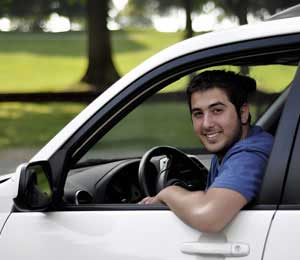 Parents often want to continue to help their grown children by providing them with a vehicle and/or insurance coverage even after that child has permanently moved out of the household and is no longer a dependent. While the intent is commendable, keeping an adult child and the vehicle he or she drives on your policy could be disastrous.
Parents often want to continue to help their grown children by providing them with a vehicle and/or insurance coverage even after that child has permanently moved out of the household and is no longer a dependent. While the intent is commendable, keeping an adult child and the vehicle he or she drives on your policy could be disastrous.
Under most personal auto policies, the definition of an "insured" includes "family members." Family members are limited to “a person related to you by blood, marriage or adoption who is a resident of your household.”
Once adult children move out and are living on their own, they no longer meet "family member" status so they and their vehicles are no longer insured on your policy. While they would have coverage under your policy while driving your vehicles as permissive users, they should obtain their own insurance for their own vehicles once they’re living on their own.
These examples help illustrate why an adult child needs their own insurance policy.
- Your child borrows a friend's truck to move and rear-ends another vehicle, injuring an occupant of that vehicle. Your child has no liability coverage for the occupant’s bodily injury or for the property damage to the other vehicle.
- Your child rents a vehicle while on vacation and doesn't buy the insurance offered by the rental car company. Again, there’s no coverage for property damage to the rented vehicle or bodily injury to others if there’s an accident.
- As a passenger in someone else’s uninsured vehicle, your child is injured in an accident. He or she will have no medical payments or uninsured motorist's coverage for any injuries.
- Your child is hit by an uninsured motorist while walking across the street. There’s no medical payments or uninsured motorist's coverage for his or her own injuries.
Without coverage from an auto insurance policy, your child will have to pay those expenses from his or her own pocket. Maybe you’ll have to help. It’s clear that it’s in your child’s best interest to have a personal auto policy in his/her own name. They’ll have the protection they need and it could prevent financial difficulties that could so easily follow an accident.
This article is intended for general educational and illustrative purposes only and should not be construed to communicate legal or professional advice. Further, this article is not an offer to sell insurance. Please consult with your licensed insurance agent for specific coverage details and your insurance eligibility. All policies are subject to the terms, conditions, limitations, definitions, and exclusions contained therein.





